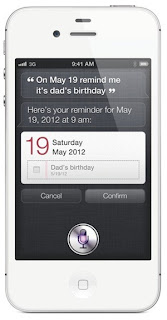
The patent, titled wireless device and network authentication methods, linked to the integration of the SIM card into the phone, embedded element within its safe.
From NFC World:
An NFC-related patent application filed by Apple in November 2010 has now been made public by the US Patent and Trademark Office.
The "Wireless network authentication apparatus and methods" patent sets out a way to incorporate a subscriber identity module (SIM) into the body of a mobile phone, within an embedded secure element.
As already mentioned in this post, this patent suggests filed last year after some reports that Apple could be integrated on a SIM card iPhone launch in Europe. This has happened yet, but with the official grant of the patent, the chances of this actually happening are greater now than ever before.
So, as an integrated work of the SIM card? Well, as you say the name would be placed in a security feature NFC chip (for example, where the credentials of the payment for services such as Google's portfolio is permanently stored in a Nexus S 4G). This card has stored the information for use in support networks. Users, so do not mess with more SIM cards, but if you buy an iPhone, which can be activated on any iTunes-compatible network.
In Europe, GSM-based carriers are required by law to have removable cards. If Apple wants its patented built-in SIM card to use in an upcoming iPhone model, the company would have to change this law. Most mobile operators do not want that to happen, as it would lose control over customers.
Since the law does not change overnight, and Apple does not like to take this drastic measure to draw the ire of wireless networks, this can be months or even years to implement.
(via The Register)

No comments:
Post a Comment